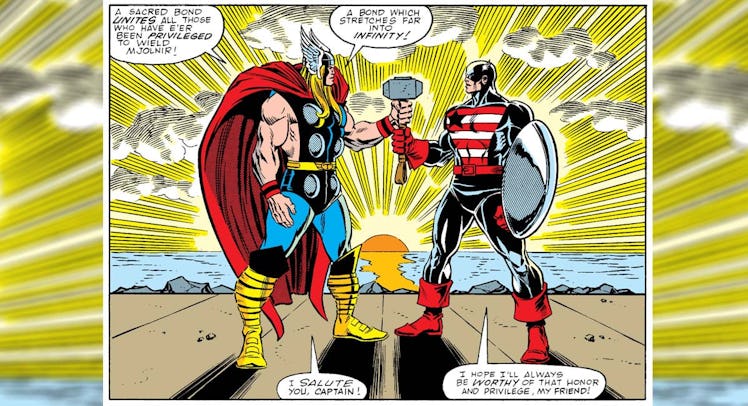‘Avengers’ Directors Just Undid That Major ‘Endgame’ Twist
Unfortunately, their explanation is not nearly as interesting as what many fans assumed.

One of if not the most dramatic moments in Avengers: Endgame is the scene in which a shieldless Captain America wields Mjolnir, Thor’s hammer that Odin enchanted so that only the worthy are able to lift it. There’s an entire scene in Age of Ultron showing the other Avengers trying and failing to pick it up. Or at least that’s what we thought was happening.
In a new interview, Endgame directors Joe and Anthony Russo were asked why Cap is able to pick up Mjolnir in Endgame but not in Age of Ultron. What changed between the two films, about nine years of Marvel Cinematic Universe time?
Anthony replied: “In our heads, he was able to wield it. He didn’t know that until that moment in Ultron when he tried to pick it up. But Cap’s sense of character and humility and, out of deference to Thor’s ego, Cap, in that moment realizing he can move the hammer, decides not to.”
There is a brief moment in that Ultron scene in which the hammer appears to move ever so slightly and a look of panic flashes across Thor’s face, so it’s not as though Russo’s explanation comes completely out of left-field. The problem is simply that his version is just not as interesting as the prevailing theory.
Many thought that in Ultron, Cap couldn’t quite pick up the hammer because he was keeping a huge secret from Tony. In Captain America: Civil War he was forced to admit that Bucky was the one who killed the Starks. So by the time that scene in Endgame rolls around, he is worthy of wielding Mjolnir. It’s a nice arc that makes narrative sense and puts adherence to a moral code, the foundation of any good superhero story, at the forefront.
And now the Russos have deflated it. Because as nice as it is to be humble and not show up your friends, it’s not nearly as interesting as telling your friend that you’ve been keeping the identity of his parents’ murderers a secret.
J.K. Rowling learned the hard way that fans don’t particularly like it when architects of elaborate fictional worlds make statements outside of their work that alters their experience.
So while theorizing about this stuff is fun, creators have to know that when they do it comes from a place of authority that can have the effect of erasing fan speculation. That robs fans of the fun of speculating themselves and, as in this case, it can provide a less interesting “answer” to the most exciting questions the work in question raises.